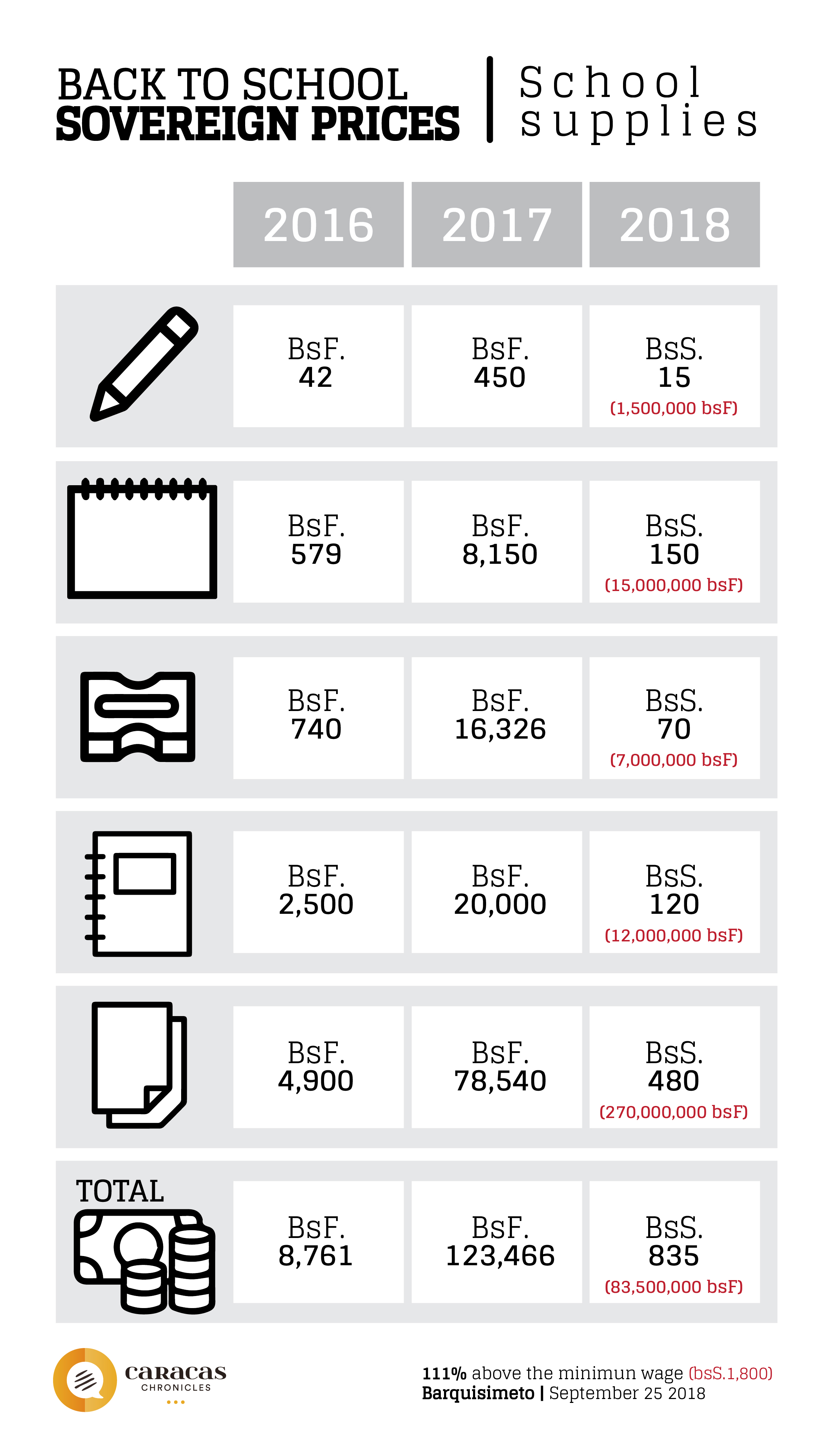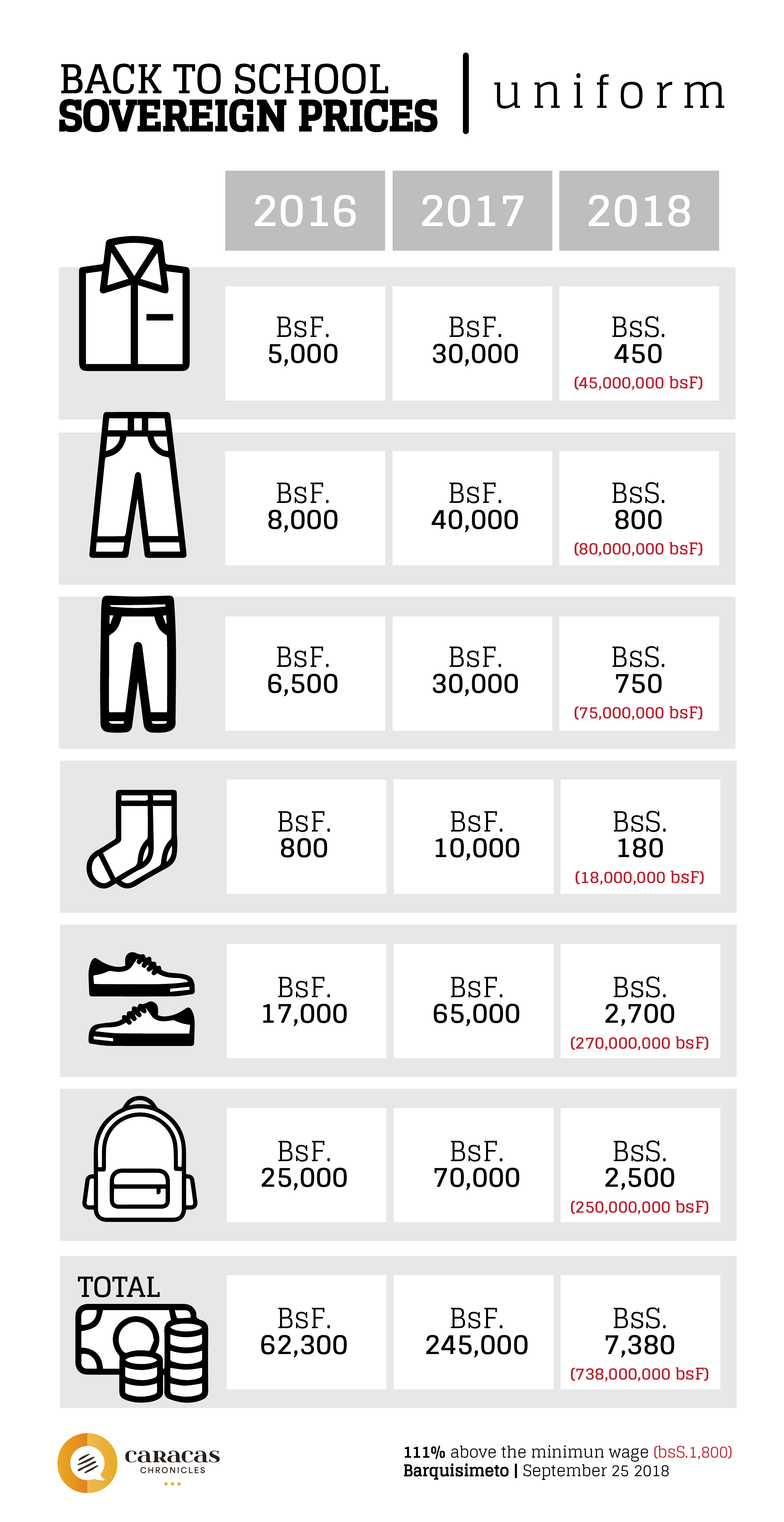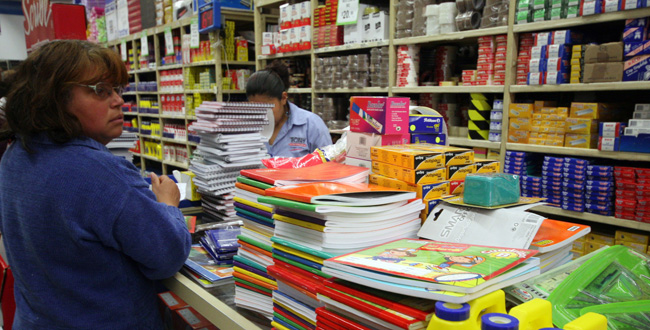Lara State Parents Can’t Afford Supplies for the New School Year
This time, hyperinflation and the economic crisis strike Larense parents and students. It’s just too expensive to send properly attired and equipped children to school, so teachers found a way.


Photos: Rosender Evíes
Purchasing school supplies and uniforms is almost impossible for thousands of parents in Lara. Regardless of how basic a school list might be, the costs may reach up to ten minimum wages, which adds an extra load of despair to the daily emotional beating that Venezuelans suffer, particularly those who live in the most vulnerable sectors.
The school year just started, and the smell of new school supplies and uniforms didn’t reach the classrooms. For the 14,290 students at Fe y Alegría’s 18 schools in the Lara – Llano area, a solution was found: teacher Alexis Moreno, zone director for Fe y Alegría, said “Our schools won’t demand new materials and uniforms, parents may bring their children however they can.”
They’re the lucky ones. People have to walk all over Barquisimeto to find the cheapest prices, and María Vargas, mother of a child in school age, says she has gone to the same stores in the boulevard of Av. 20 in downtown Barquisimeto many times over.
“I’ve been trying to buy the list of materials for a month. I’m going to buy only what’s strictly necessary and what my budget can cover.”
 School uniforms are a particular brand of suffering. Rafael Silva says that his son, who attends 5th grade, doesn’t have his uniform yet, and he doesn’t know if he’ll have it anytime soon.
School uniforms are a particular brand of suffering. Rafael Silva says that his son, who attends 5th grade, doesn’t have his uniform yet, and he doesn’t know if he’ll have it anytime soon.
“The pants cost me Bs.S. 360, the shirt is Bs.S. 220 and socks are Bs.S. 100. Let’s not count the price of shoes, because he’s going to wear the same ones he wore last year, I hope they’ll hold together.”
Zoraida Torrealba, who has a son attending 5th grade in western Barquisimeto, appealed to her neighbors’ solidarity: “A teacher gave us a notebook, a friend gave me a box of pencils and I hope to get one of the school backpacks the government is handing out.”
Many parents say they got the “school bonus” for Bs.S. 200 granted by the government through the Patria system, but they also say, like Mr. Silva, that it doesn’t cover the amount for supplies and uniforms. Yelitza Figueroa, an affected mother, explained with frustration that “with the bonus I only managed to buy a notebook, a pencil, a sharpener and an eraser. At least so my child can attend school the first days.”
 School fairs typically used to offer affordable prices in comparison with stores, but this year they’re nowhere to be seen. Neither the Lara Governor’s Office, nor the Iribarren Mayor’s Office installed their traditional fairs in Plaza San José, Los Ilustres or the street near Teatro Juárez.
School fairs typically used to offer affordable prices in comparison with stores, but this year they’re nowhere to be seen. Neither the Lara Governor’s Office, nor the Iribarren Mayor’s Office installed their traditional fairs in Plaza San José, Los Ilustres or the street near Teatro Juárez.
Store owners dedicated to selling school materials and uniforms point out that, compared to last year, business has been bad.
José González, owner of Librería España, in downtown Barquisimeto, says that people only ask. “Before, parents brought almost the entire list. Now they come and ask, and if prices are convenient, they buy something.” María Gutiérrez, who sells school backpacks, says that sales have been low, and that “we only sell backpacks for children in kindergarten.”
Meanwhile, the government has announced that they’ll hand over school backpacks and uniforms across the country to counter “the economic war.”
Nixon Arrieche, chief of Lara’s educational zone, says that out of the 289,484 children who start school this week, only those in priority areas will be getting their supplies, with students getting two uniforms, one for classes and another for physical education. This week, Lara governor Carmen Meléndez announced on her Twitter account the start of this handout process.
The long lists of school supplies and uniforms can’t be an impediment for children in our country to have the guarantee of their right to education and the humanitarian crisis that Venezuelan families are experiencing can’t be used as a political flag for authorities to save face either.
But we’re not optimistic about chavismo’s altruism.
Caracas Chronicles is 100% reader-supported.
We’ve been able to hang on for 22 years in one of the craziest media landscapes in the world. We’ve seen different media outlets in Venezuela (and abroad) closing shop, something we’re looking to avoid at all costs. Your collaboration goes a long way in helping us weather the storm.
Donate





